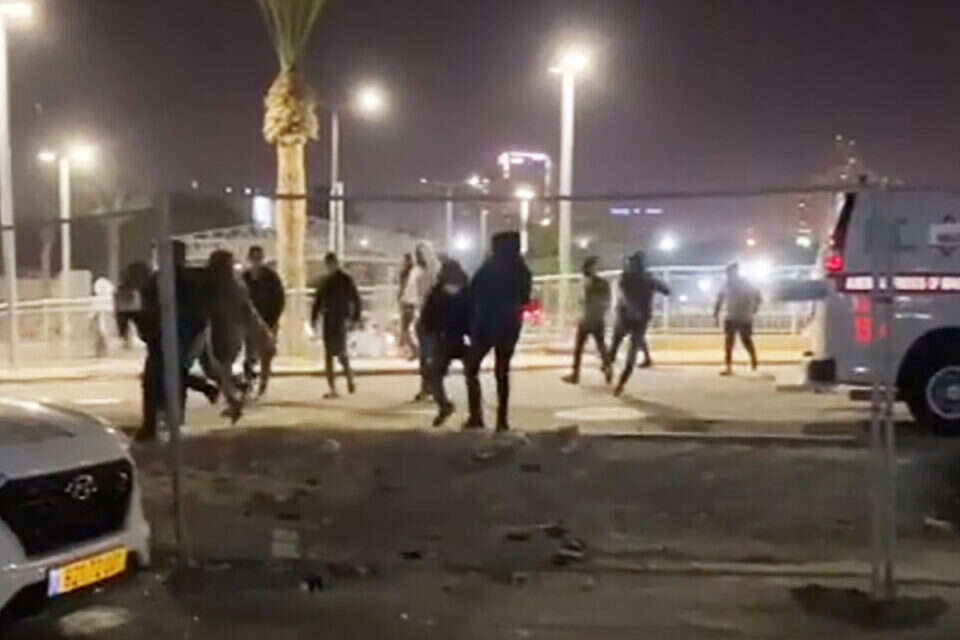The series of violent incidents in the south, which culminated in the past week, flooded with an interesting discourse.
On the one hand, the voice of the people of order and the law resonates.
The commander of the Southern District Police, Superintendent Peretz Amar, spoke highly of the increase in operations to collect illegal weapons, and added in an optimistic tone that in the current state budget, about 400 standards have been allocated to new police officers, and only in the Negev.
On the other side, there are social activists grinning at the policeman, who in their opinion does not understand the limits of power and the wide-ranging effects of politics. In their view, police officers need to understand that enforcement operations are more of the same thing. For example, about a week ago, the directors of the Negev Coexistence Forum, Chaya Noah and Hanan Alsane, published an article in Haaretz that presented an in-depth, alleged explanation behind the prevailing violence among Bedouin youth: discrimination in land ownership, nationality law, exclusion Socially, all of these are a proven recipe for intensifying anger among the minority. What did you think a young man from the Bedouin diaspora "who was systematically discriminated against because of his background" would do? True ... he will turn to criminal channels: "Please, do not talk about collecting weapons. This is nonsense. Talk about collecting boys from the street," they wrote.
There are things in the body. A good police officer is one who understands that the toolbox at his disposal is limited, and that the use of force, as varied and sophisticated as it may be, will not necessarily solve the problem. A policeman with his eyes in his head is the one who understands that crime is woven into the social and civic infrastructure. At the same time, an intelligent police officer can moderate the problem to a critical degree.
This self-righteous discourse, the wording of the article in Haaretz, is fundamentally wrong and does more harm than good. The authors' words clearly echo the systematic line of intellectuals in their own eyes, who instead of condemning the criminals, turn to the "superstructures": the state and its affiliates. Unlike Marxist folly, violence is not necessarily the way of the weak. The answer to the question of how the weak deal with their weakness, that is, why they turn to violence, may, to a large extent, be a matter of cultural choice.
How exactly did the Nationality Act affect the violent riots that erupted at the gates of Soroka Hospital (born of a clan struggle for blood revenge)? How exactly is the causal connection created between a child who sees that his house (built in violation of the law) was destroyed by the authorities, and the phenomenon of the murder of women against the background of "desecration of the family"? How exactly do deprivation and exclusion lead to the phenomenon of protection? It is interesting that precisely those social activists and their intellectual teachers (a term that has unfortunately become synonymous with stupidity and ideological dogmatism), who in recent decades resonate with "multiculturalism", are the great contemptors of local and community roots: on the one hand, they exalt culture , Music, art, food; On the other hand, they negate the power of culture in its high teaching - norms, ways of thinking and values of the community. Skip the two sections. All with the thought that the state can easily shred, grind and easily process the variety of identities, including the Bedouin, into a single Israeli standard.
In front of the policeman and the intellectual stands the common sense man, who in contrast to the simplistic thinking of the types mentioned, excels in complex thinking.
He knows full well that people are not born violent, and that behind the offender there are circumstances, culture and community and state;
Therefore, it leaves room for policy changes that may reduce the Sisyphean workload of the police.
On the other hand, unlike the intellectual, he recognizes the responsibility of the weak for his weakness.
In his common sense, he understands that allegations of discrimination are limited, since he knows that in places where the Jews lived and suffered from anti-Semitism, the Jewish boys did not find an outlet for them through violence.
By the way, "anti-Semitism" is a term that does not roll on the tongue of the intellectual, only universal "racism".
Common sense is scattered at various intersections: he can be a taxi driver, a policeman, a young Bedouin (if endowed with courage), and yes, he can be educated and intellectual (if endowed with public courage).
Common sense people - unite!
And the main thing: do not be afraid at all.

